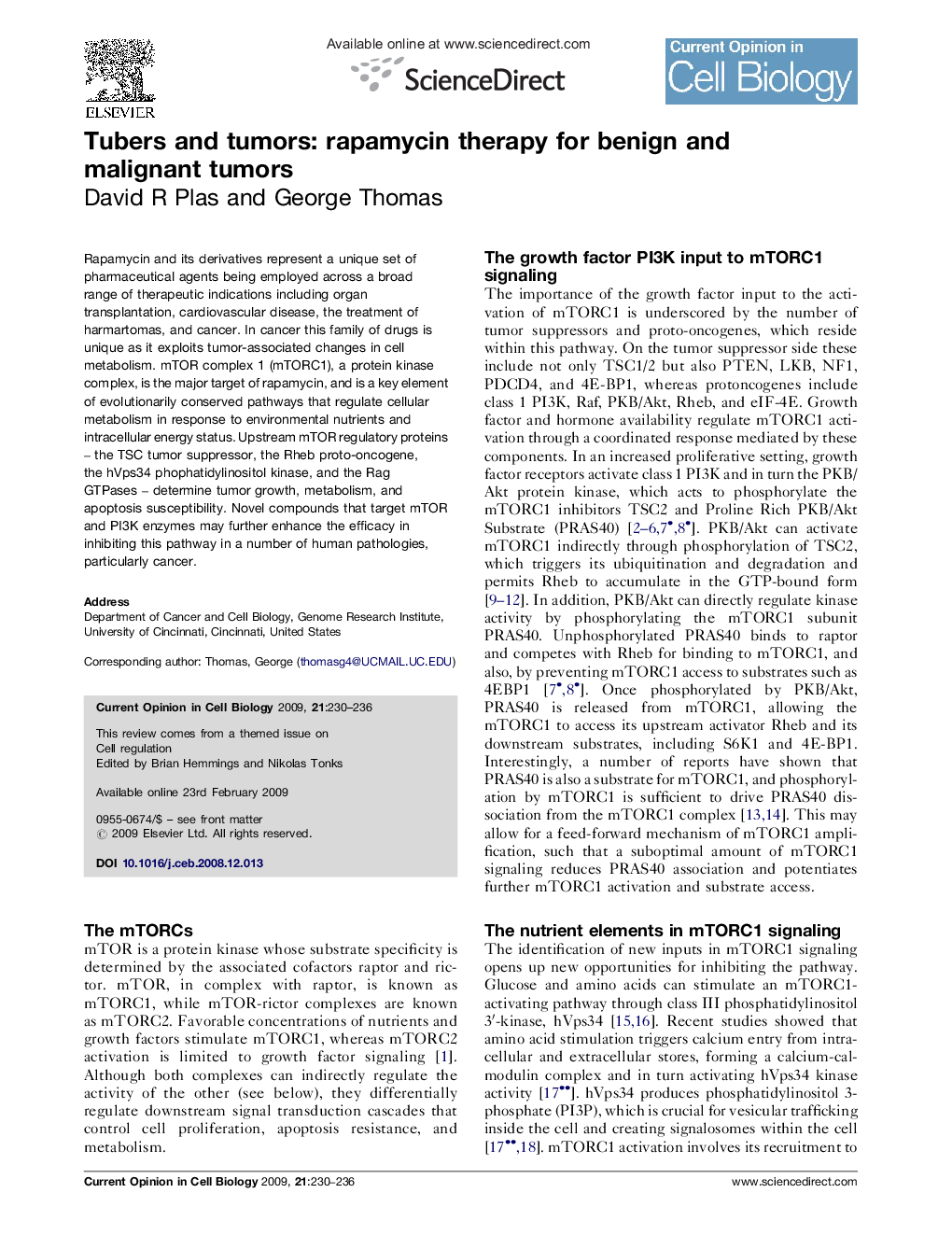| کد مقاله | کد نشریه | سال انتشار | مقاله انگلیسی | نسخه تمام متن |
|---|---|---|---|---|
| 2169933 | 1093238 | 2009 | 7 صفحه PDF | دانلود رایگان |

Rapamycin and its derivatives represent a unique set of pharmaceutical agents being employed across a broad range of therapeutic indications including organ transplantation, cardiovascular disease, the treatment of harmartomas, and cancer. In cancer this family of drugs is unique as it exploits tumor-associated changes in cell metabolism. mTOR complex 1 (mTORC1), a protein kinase complex, is the major target of rapamycin, and is a key element of evolutionarily conserved pathways that regulate cellular metabolism in response to environmental nutrients and intracellular energy status. Upstream mTOR regulatory proteins – the TSC tumor suppressor, the Rheb proto-oncogene, the hVps34 phophatidylinositol kinase, and the Rag GTPases – determine tumor growth, metabolism, and apoptosis susceptibility. Novel compounds that target mTOR and PI3K enzymes may further enhance the efficacy in inhibiting this pathway in a number of human pathologies, particularly cancer.
Journal: Current Opinion in Cell Biology - Volume 21, Issue 2, April 2009, Pages 230–236